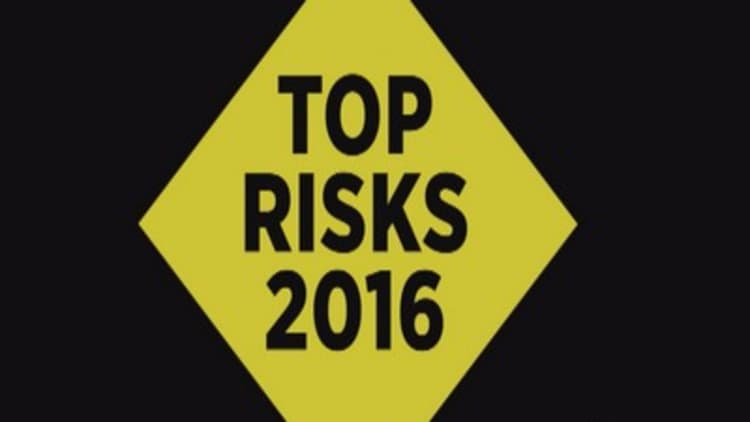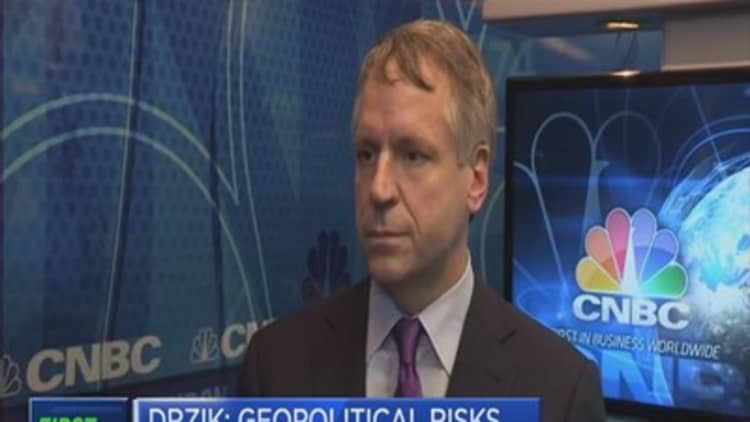
Large-scale involuntary migration is the most likely and serious problem facing the world in the next year and a half, according to a flagship annual report from the World Economic Forum (WEF.)
"The key findings, I'd say this, year, are that it is a riskier environment and sources of instability are broadening to include geopolitical frictions, societal risks like the refugee crisis, weather, cyber — they are all out there," John Drzik, the president of global risks and specialties at Marsh, which collaborated on the report, told CNBC.
Other top risks included interstate conflict, extreme weather, failure to mitigate or adapt to climate change, weapons of mass destruction and a severe energy price shock, the foundation reported on Thursday. Its annual report was based on a survey of more than 13,000 executives in 140 countries, across business, academia, civil society and the public sector.
Flows of refugees across the world reached unprecedented numbers last year, having rapidly increased in both 2014 and 2015 due to prolonged crises in Syria and Iraq in the Middle East and Nigeria, South Sudan and the Democratic Republic of the Congo in Africa. More than 4.6 million refugees from Syria alone were registered by the United Nations in 2015, the majority of them in Turkey, Lebanon, Jordan and Iraq.
Corporate leaders as well as politicians needed to work to help lessen the impact of the situation, Drzik told CNBC.
"It is a concern for the business community too, because if you think about migration potentially having an impact on political fragmentation in Europe and that spilling over into challenges for the economic sphere; if there is less migration of capital across boundaries, people across boundaries; that's not good for business and so I think business should be working together with governments to try and create a more fluid environment and address the migration challenge head on," he said.

The 750 respondents to the WEF survey, who were polled online, named climate change and the failure to adapt to or mitigate its effects as the risk with the greatest potential impact in 2016 — the first time in the report's 10-year history that an environmental risk topped the list.
The global mean temperature likely topped the milestone of 1 degree Celsius above pre-industrial levels in 2015, based on evidence cited by the U.K. Met Office in November. In December, at a United Nations conference on climate change in Paris, more than 190 countries agreed to work to keep global warming "well below" 2 degrees Celsius.





